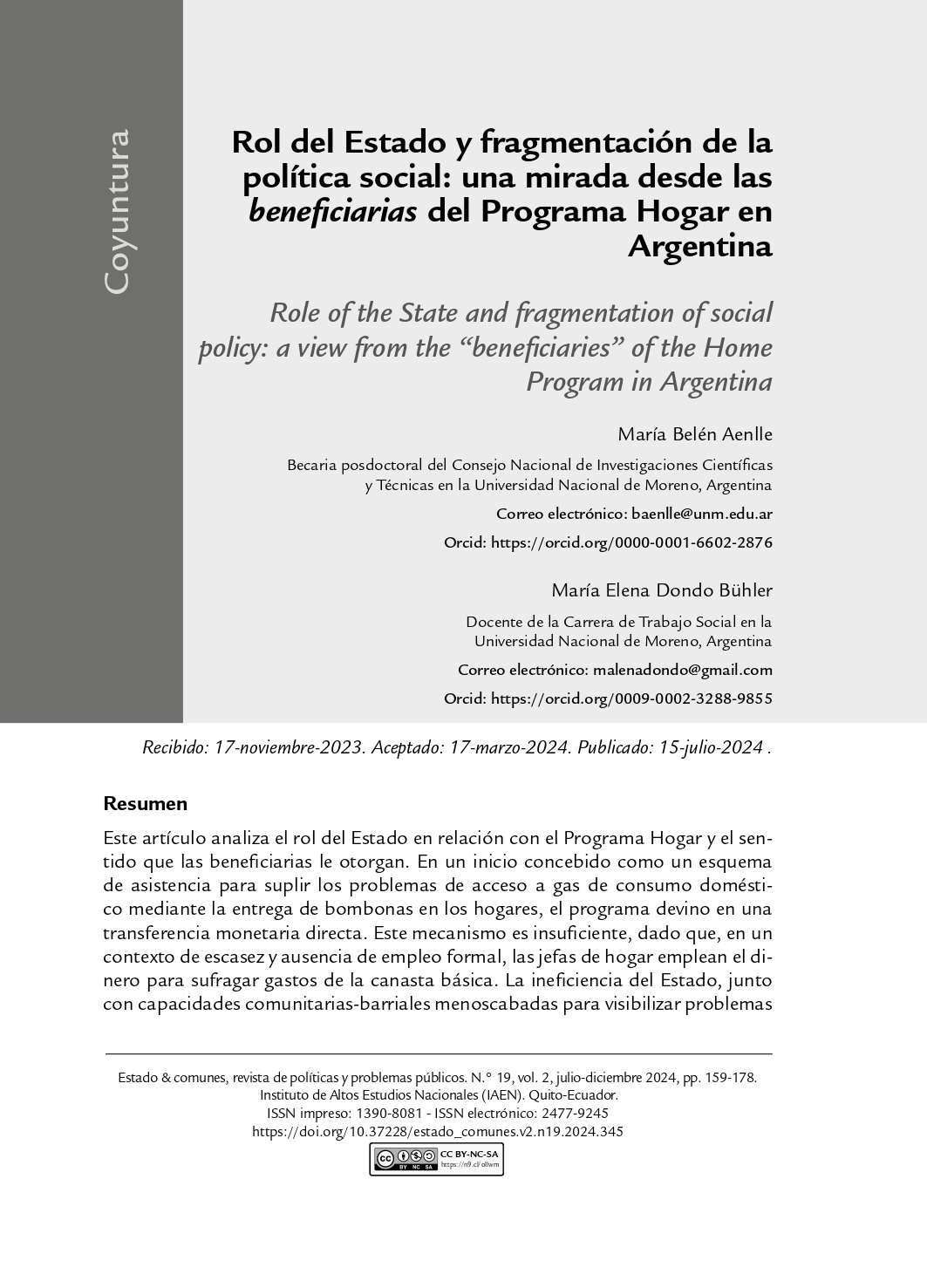Role of the State and fragmentation of social policy: a view from the "beneficiaries" of the Home Program in Argentina
Main Article Content
Abstract
This article analyses the role of the Argentinian state concerning the Home Programme and the meaning beneficiaries give to it. Originally conceived as an assistance scheme to overcome problems of access to gas for domestic consumption through the delivery of gas cylinders to households, the programme became a direct monetary transfer. In a context of scarcity and lack of formal employment, the mechanism is insufficient given that female heads of household use the money to cover basic food basket expenses. The inefficiency of the state and the undermining of community and neighbourhood capacities to make problems visible and make demands would mean that the programme does not produce beneficiaries. In conclusion, the state carries out partial benefits that do not cover the needs of vulnerable households; likewise, the "Home Programme" dynamics could fulfil relevant objectives if it examines and adjusts its focus on rights.
Downloads
Article Details
How to Cite
Issue
License
Copyright (c) 2024 María Belén Aenlle, María Elena Dondo Bühler
CC BY-NC-SA. This license allows sharing, copying, distributing, performing, and publicly communicating the work, as well as creating derivative works.











